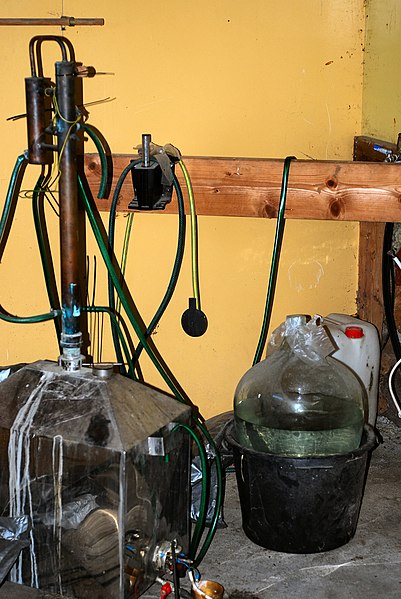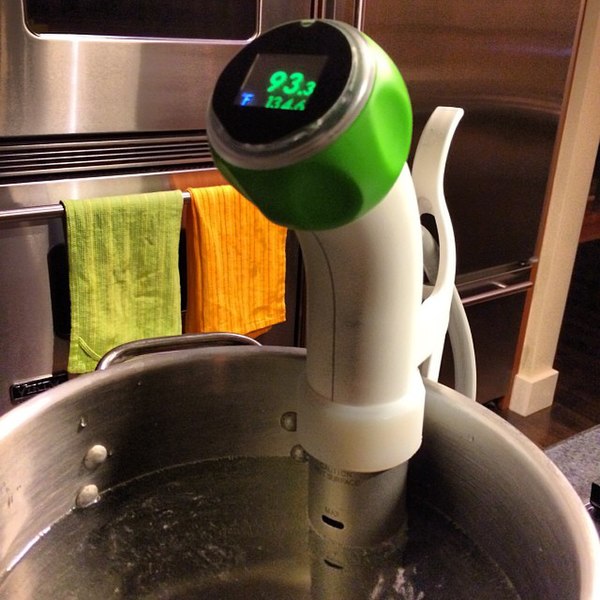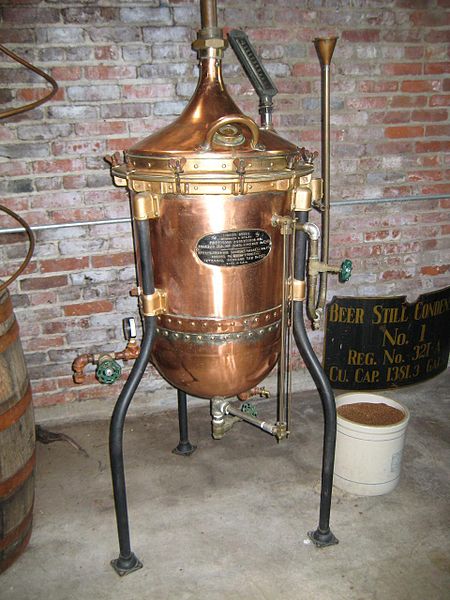Moonshine is high-proof liquor, traditionally made or distributed illegally. Its clandestine distribution is known as bootlegging. The name was derived from a tradition of creating the alcohol during the nighttime, thereby avoiding detection. In the first decades of the 21st century, commercial distilleries have adopted the term for its outlaw cachet and begun producing their own legally sanctioned, novelty "moonshine", including many flavored varieties, that in some sense continue its tradition, generally having a similar method and/or location of production.
A modern DIY pot still
A thermal immersion circulator, like this sous vide stick, is used to evaporate ethanol in plastic stills or spiral stills.
Former West Virginia moonshiner John Bowman explains the workings of a still. (November 1996, American Folklife Center)
Lucas test: Negative (left) with ethanol and positive with t-butanol.
Liquor is an alcoholic drink produced by the distillation of grains, fruits, vegetables, or sugar that have already gone through alcoholic fermentation. Other terms for liquor include: spirit, distilled beverage, booze, spirituous liquor or hard liquor. The distillation process concentrates the liquid to increase its alcohol by volume. As liquors contain significantly more alcohol (ethanol) than other alcoholic drinks, they are considered "harder." In North America, the term hard liquor is sometimes used to distinguish distilled alcoholic drinks from non-distilled ones, whereas the term spirits is more commonly used in the UK. Some examples of liquors include vodka, rum, gin, and tequila. Liquors are often aged in barrels, such as for the production of brandy and whiskey, or are infused with flavorings to form flavored liquors, such as absinthe.
An old whiskey still
A display of various liquors in a supermarket
Some single-drink liquor bottles available in Germany
Viru Valge, an Estonian vodka








